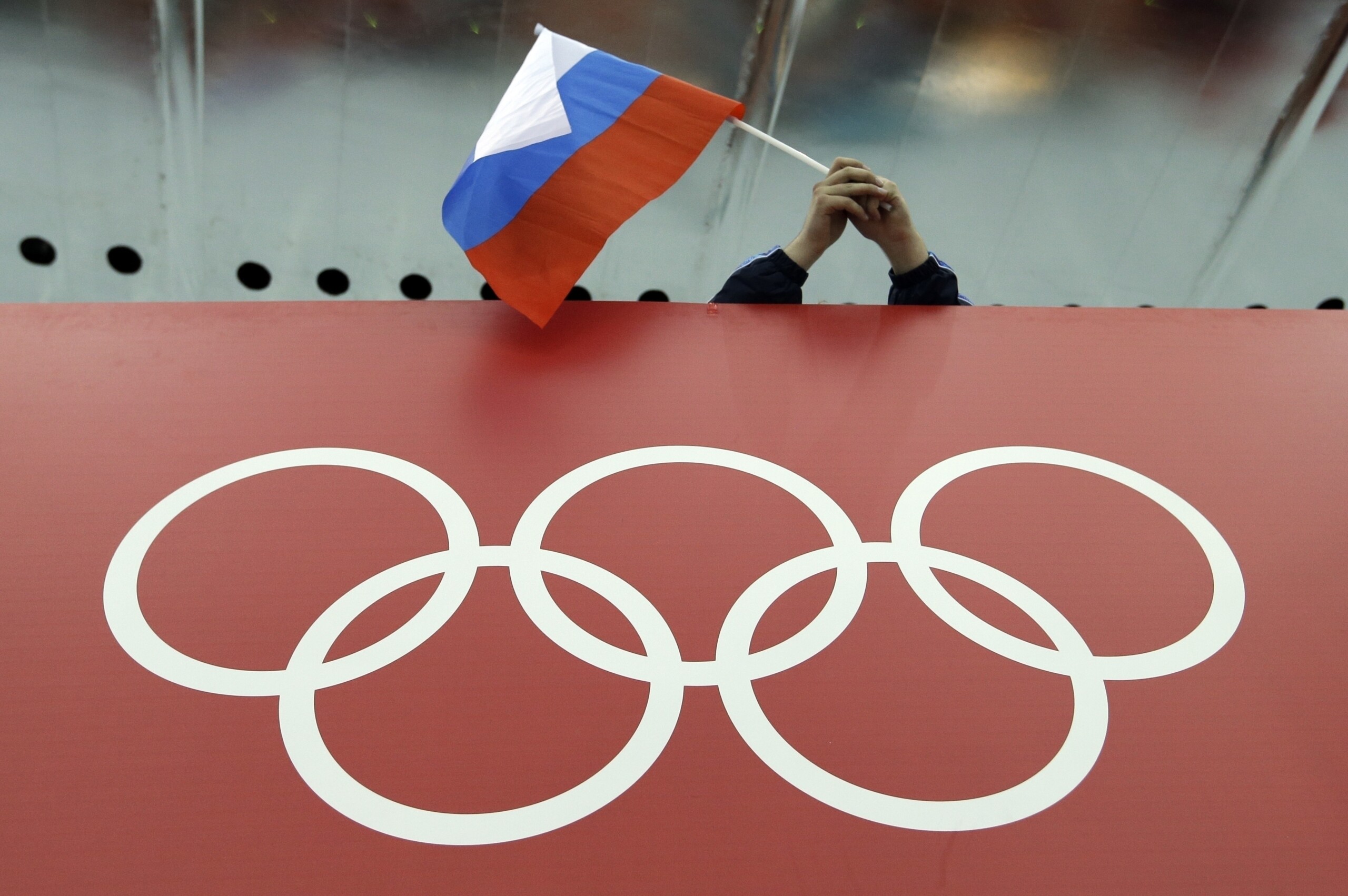Zelenskyy to address summit on Russian Olympic involvement
LONDON (AP) — As Ukraine pushes for Russian athletes to be barred from next year’s Paris Olympics and threats of a boycott mount, officials from 30 countries were holding a summit Friday to discuss how to respond.
The International Olympic Committee argues it would be discriminatory to exclude Russia and ally Belarus from the 2024 Olympics entirely. The IOC wants their athletes to compete in a neutral capacity without national symbols.
Ukrainian President Volodymyr Zelenskyy, who has previously said any neutral flag for Russia would be “stained with blood,” is due to address the online summit by video link. Zelenskyy made surprise visits to Britain and France on Wednesday, pushing for fighter jets to battle Russian invaders in a dramatic speech to the British Parliament.
Friday’s meeting was taking place on a day of intense missile and drone strikes by Russian forces against Ukraine.
“President Zelenskyy told the UK in Parliament this week of the suffering still being felt by many Ukrainians. As he did so the IOC was continuing to ignore the international allies stepping up their efforts for peace and disregard how the Olympics will give (Russian President Vladimir) Putin the perfect platform to promote Russia and legitimize his illegal war,” British Culture Secretary Lucy Frazer, who is chairing the meeting, said in a statement Thursday.
“We’re approaching a year since this barbaric invasion began. We must urge the IOC to show that the Olympic values mean something. We must make clear there are consequences to this illegal invasion. We cannot allow Russian athletes to line up alongside Team GB (the British Olympic team) and everyone else on the world stage.”
Ukrainian Sports Minister Vadym Guttsait said allowing Russians to compete would further traumatize athletes affected by the war.
“The participation of Russian and Belarusian athletes in international competitions will make it impossible for Ukrainian athletes to take part in them, because each of the Ukrainians suffered from Russian aggression in one way or another: They lost their relatives and friends, lost their homes, received psychological trauma, lost the opportunity to do what they love,” Guttsait, who also leads the Ukrainian Olympic Committee, wrote in a letter to IOC president Thomas Bach and other Olympic leaders that was published Friday.
Guttsait argued the IOC was focusing too much on the rights of Russians to compete and not enough on the rights of Ukrainians to feel safe around Russian competitors in places like the Olympic village.
“How and in what way will the rights of Ukrainian athletes be protected? Will they be able to step onto the same sports field and compete with the Russian athletes at a time when their families, friends and colleagues are in mortal danger?” he wrote.
Ukraine has previously made public a letter from Bach to Guttsait saying that “threatening a boycott … goes against the fundamentals of the Olympic Movement and the principles we stand for.”
Political leaders of Ukraine’s nearby allies in Poland and the Baltic states have said there could be Olympic boycotts if the IOC forges ahead with its plan. Paris Mayor Anne Hidalgo has said Russian and Belarusian athletes should be barred from the Olympics in her city if the war is still going on by then.
The IOC, which last year backed excluding Russians and Belarusians from sporting events on safety grounds, also faces challenges from within its own movement. It has given the federations running individual Olympic sports the final say on the details of readmitting Russian and Belarusian athletes. The sports could impose different rules and move at different speeds, or challenge the IOC’s authority entirely.
The governing body of archery said last week that it was “very unlikely” to allow any neutral athletes to compete in 2023, including at Olympic qualifiers. The IOC’s plan for Russians and Belarusians to qualify for the Olympics through competitions in Asia, instead of Europe, was not acceptable either, it added. The governing body of track and field has its own restrictions on the Russian team because of doping and its president, Olympic great Sebastian Coe, has said his preferred solution would be for Russia to “get out of Ukraine.”
Olympic qualifiers are under way in some sports and start soon in many more. That leaves federations to grapple with how to reshape a process that they thought was finalized years ago.
It could also be up to them to implement the IOC’s plan to leave out Russian and Belarusian athletes deemed to be “actively supporting the war in Ukraine.” The IOC hasn’t defined what constitutes support. Ukraine is particularly concerned that Russian athletes from military sports clubs or who hold military ranks could compete.
“In Russia, sport is an element of politics, powerful propaganda, in this case the promotion of war,” Guttsait wrote to Bach.
Many of the national Olympic committees have taken the IOC’s line, but some like Ukraine and Latvia say they would rather boycott than compete against Russian athletes. Five sports bodies in the Nordic countries said Tuesday they wanted a ban on athletes and officials from Russia and Belarus.
